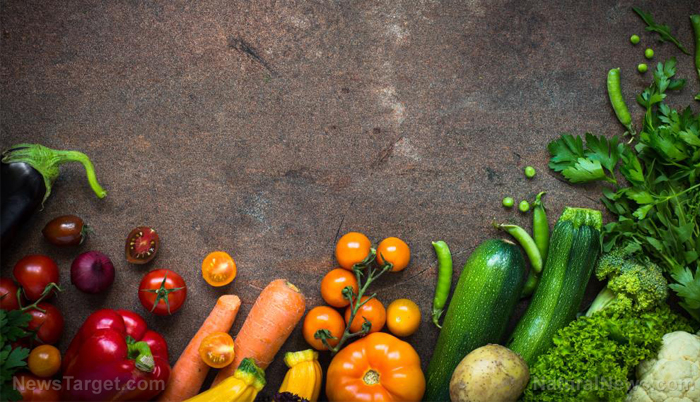![]() Home > Lifestyle
Home > Lifestyle
Study Proves That People Who Eat Organic Have 25% Lower Risk Of Cancer

![]() November 3rd, 2018 | 08:00 AM |
November 3rd, 2018 | 08:00 AM | ![]() 317 views
317 views
NATURALNEWS.COM
If you’ve ever doubted whether organic food is worth the higher price tag, a study that was recently published in JAMA Internal Medicine should put your concerns to rest. In the study, French researchers showed that people who consume organic food have a 25% lower risk of cancer.
The study, which was carried out under the guidance of epidemiologist Julia Baudry, looked at the diets of nearly 70,000 French adults with an average age in their mid-40s. The volunteers were divided into four categories according to how often they ate 16 organic products that included vegetables, fruit, fish, meat, prepared meals, condiments, dietary supplements, vegetable oils and other products.
After an average follow-up time of 4 ½ years, the researchers looked at how many of the participants had developed some type of cancer. After comparing the volunteers’ organic food scores with the cancer cases, they were able to determine that those who ate the most organic food were 25 percent less likely to develop cancer than those who did not eat organic food. When it came to specific types of cancer, the group who ate organic was 73 percent less likely to go on to develop non-Hodgkin’s lymphoma and 21 percent less likely to go on to develop postmenopausal breast cancer.
It might be tempting to assume that the group who ate organic food would be more health-conscious overall and likely had a healthier diet in general, and that may be responsible for the lower cancer risk. However, the researchers say that simply is not true; even those who ate a low- to medium-quality diet yet opted for organic enjoyed the reduced cancer risk.
The authors concluded that should the findings be confirmed, promoting the consumption of organic food to the public could serve as a good strategy against cancer.
Pesticides have long been linked to cancer
The co-author of the commentary that was published alongside the study, Harvard T.H. Chan School of Public Health Associate Professor Dr. Jorge E. Chavarro, called the findings “incredibly important” and pointed out that they are consistent with the International Agency for Research on Cancer’s finding that pesticides cause cancer in humans.
The study’s findings are also supported but other studies have shown a negative relationship between the consumption of organic food and non-Hodgkin lymphoma in particular.
Agricultural chemical firms like Monsanto have long insisted their products do not cause non-Hodgkin lymphoma. However, in August, Monsanto was ordered to pay a school groundskeeper who was terminally ill with the disease $289 million in damages, and they are facing class-action lawsuits on behalf of countless other cancer patients who have developed the disease from exposure to glyphosate.
Yes, organic is worth it
Although the study does leave some questions unanswered, the authors believe that the negative relationship between organic food consumption and cancer risk comes from the “significant” decrease in contamination exposure that takes place when people replace conventional food with organic varieties.
Defenders of conventional agriculture and those who profit from pesticides may argue that the study was flawed, but it’s hard for many people to justify continuing to take such a gamble with their health. In the past decade, the organic food industry has more than doubled. Last year, the Organic Trade Association reports that organic food made up 5.5 percent of all the food sold in the U.S. Although more people are making this healthy choice, it’s clear that more progress needs to be made in spreading the word about the benefits of choosing organic.
Source:
courtesy of NATURALNEWS
by Isabelle Z.
If you have any stories or news that you would like to share with the global online community, please feel free to share it with us by contacting us directly at [email protected]